
Church should be a place where grace wins over gossip, but human nature doesn’t switch off at the door. People notice — and sometimes quietly judge — things you’d never expect. Most of it isn’t spoken out loud; it’s exchanged in quickglances, raised eyebrows, or quiet thoughts that stay unshared. It might not be fair, but it’s real, and if you’ve been in church long enough, you’ve probably done it too.
Where You Sit

Church seating is more territorial than people admit. Slip into a pew someone’s claimed for years, and you might catch the faintest pause before they sit elsewhere. Some judge those who hide in the back as disengaged, while others see the front row sitters as overly eager. Even sitting dead center can draw silent conclusions — it’s amazing how much people read into a choice you made in two seconds.
How You Dress
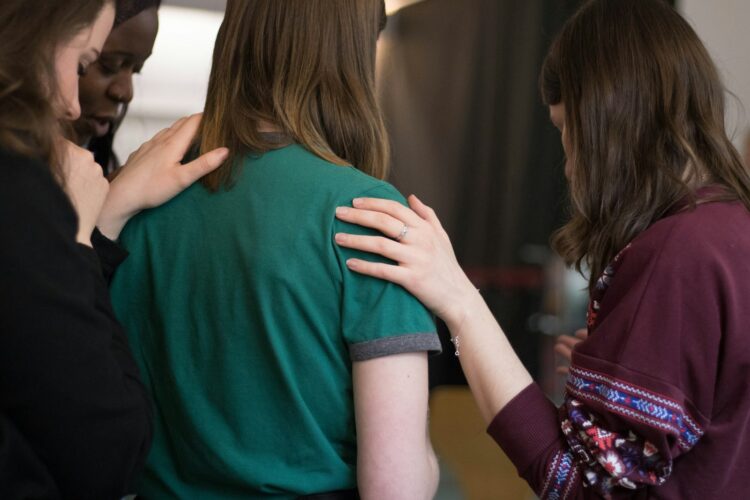
The official line is “come as you are,” but eyes still scan what you’re wearing. Show up in jeans where most wear suits and ties, and you might notice a flicker of surprise. Turn up in a dress and heels at a church where everyone’s casual, and the same thing happens. People notice if your clothes are wrinkled, too flashy, or look expensive — even if they never say a word.
Whether You Sing
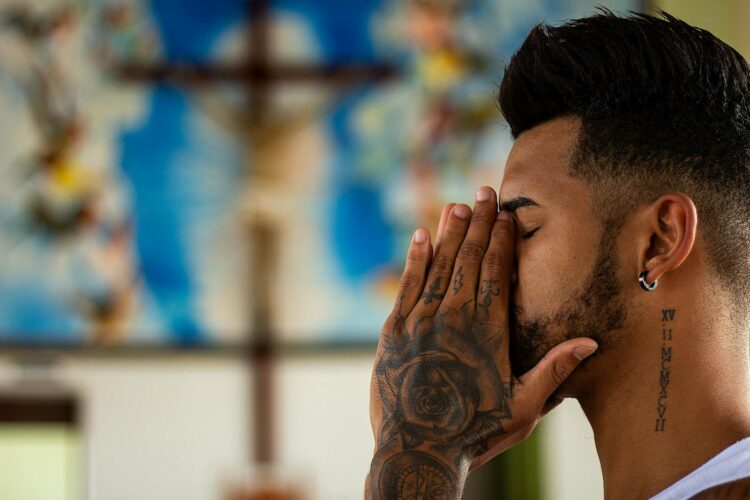
During worship, the room’s energy shifts depending on who’s singing along. If you stay silent, some assume you’re disconnected. If you sing off-key but loud, there’s a chance you’ll catch a side glance. Even your posture — hands in pockets, eyes open, or looking around while everyone else is focused — gets noticed. Nobody officially keeps score, but people quietly register who seems “into it” and who doesn’t.
When You Arrive

Slip in after the first song starts, and you’ll feel heads turn. Some are curious, others quietly annoyed at the interruption. Arrive well before the start, and you might get asked why you’re “so early.” Timing becomes part of your unspoken reputation, whether you’re always late, perfectly punctual, or consistently the one saving seats minutes before the sermon begins.
How You Handle Your Kids

Kids make noise — that’s normal. But every dropped crayon or whispered question seems amplified in a quiet sanctuary. Some people will smile at your toddler’s energy; others will silently wish you’d keep them still. Correct them too firmly, and someone will think you’re harsh. Let them wiggle too much, and someone else will think you’re too lenient. Either way, you can’t win in every set of eyes.
Your Participation in Prayer
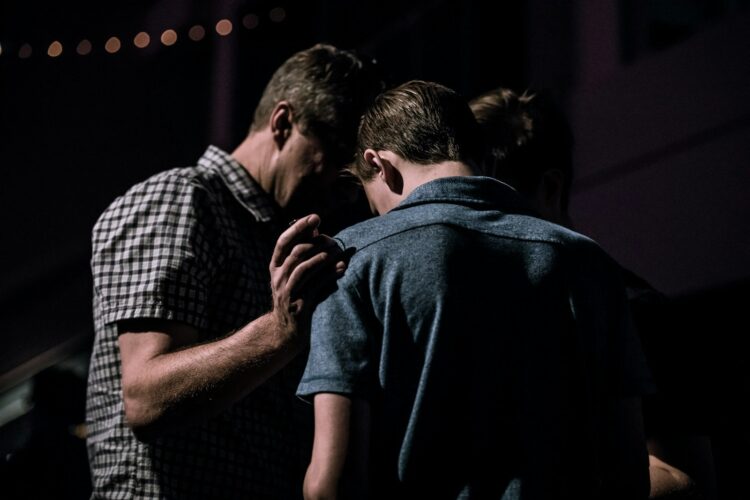
Group prayer has its own unspoken etiquette. Bow your head and fold your hands, and you blend in. Keep your eyes open, and you might catch someone glancing your way. Speak during prayer requests every week, and people might think you’re oversharing; never speak, and they might think you’re detached. Even a small shuffle or cough in the silence can feel louder than it should.
How Much You Give
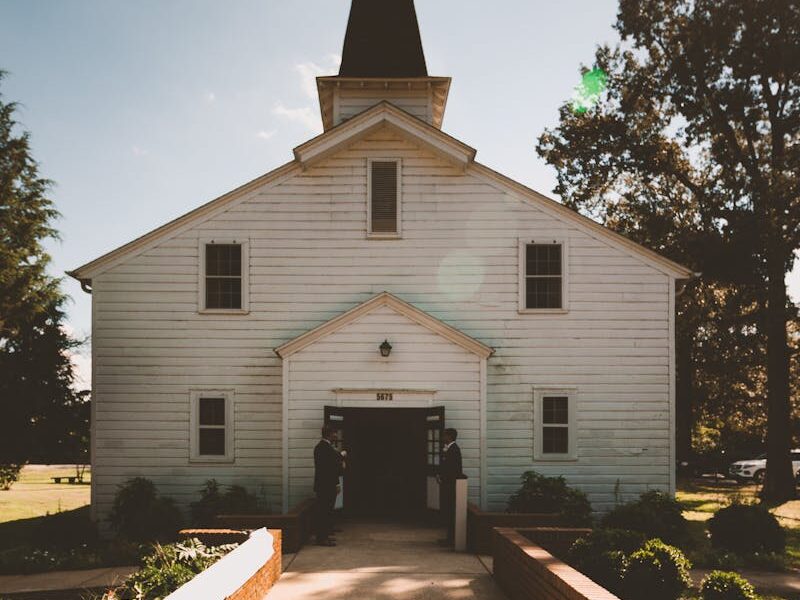
Offerings are meant to be private, but habits are hard to hide. Those who give regularly might be quietly respected; those who pass the plate without contributing might be quietly questioned. Drop in cash with an exaggerated movement, and some will think you’re showing off. In reality, few people know the truth about anyone’s giving — but that doesn’t stop assumptions from forming.
Who You Talk To

After the service, conversations are quietly observed. Always sticking to the same group can make you seem cliquish. Talking to someone new or unexpected might spark curiosity — or suspicion, depending on the person. Even the order in which you greet people gets noticed. Sometimes the judgment is about who you don’t speak to more than who you do.
Whether You Stay After
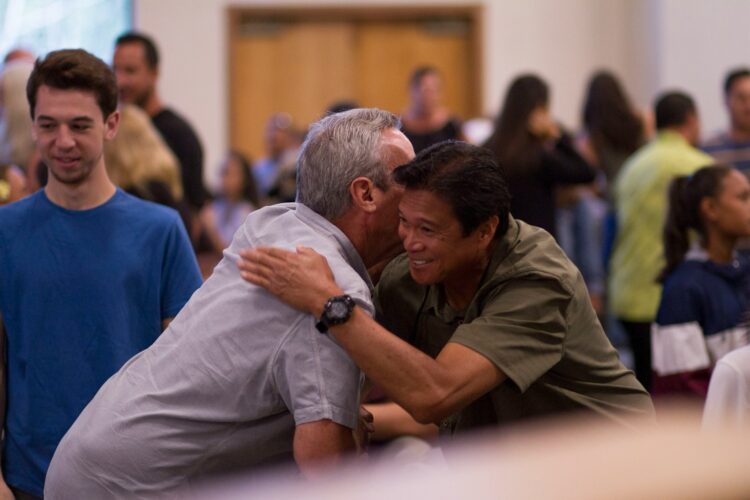
Some people slip out the side door before the closing song ends. Others linger for coffee, catching up until the building’s nearly empty. Leave quickly every week, and people may think you’re disinterested or avoiding someone. Stay too long, and someone else might think you’re overly nosy. The truth could be completely unrelated, but the perception still forms quietly.
Your Reaction to the Sermon

Facial expressions during a sermon are telling. Nod along at certain points, and someone notices. Look confused or frown, and it’s easy for others to think you’re disagreeing. If the pastor makes a joke and you don’t laugh while others do, it stands out. Even shifting in your seat at the wrong moment can be interpreted as boredom, whether that’s true or not.
How You Handle Service Mistakes

When the wrong verse is projected or the microphone squeals, people often look around to see who reacts. Laughing a little too loudly or shaking your head can make you seem critical. Pretending nothing happened might earn you silent approval. It’s strange how moments meant to be shrugged off can become tiny tests in how others perceive you.
If You Volunteer

Volunteering is noticed almost as much as attendance. Never helping might make you seem uninvolved; signing up for everything might make you seem like you’re trying to control things. Even the type of volunteering matters — teaching kids, singing in the choir, working behind the scenes. People often form quiet opinions about your level of “commitment” based on where and how you serve.
The Company You Keep Outside Church

It’s not just Sunday behavior that gets noticed. Being seen at certain places during the week or tagged in photos with certain people can shape how you’re perceived. Even casual connections can spark quiet whispers about who you spend your time with. You may never hear about it directly, but the awareness is there when you walk in next Sunday.
How You Respond to Visitors

When a new person sits nearby, your reaction can leave a bigger impression than you realize. Offering a smile or greeting gets noticed. Avoiding eye contact or moving seats gets noticed, too. Some will judge based on whether you’re welcoming enough; others will judge if you seem “too forward.” Either way, that small interaction becomes part of how people think of you.
The Way You Leave

Your exit is the last thing people see. Walking out quietly after chatting a bit feels normal to most, but leaving abruptly or before the final song ends can raise questions. On the flip side, making a big show of saying goodbye to everyone can make you seem overly performative. Either way, that moment sticks in people’s minds longer than you might expect.

